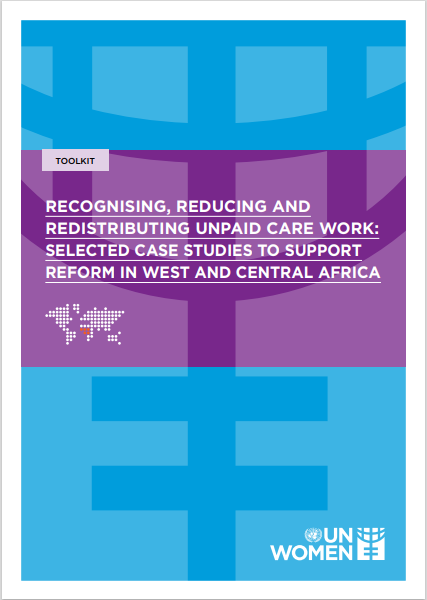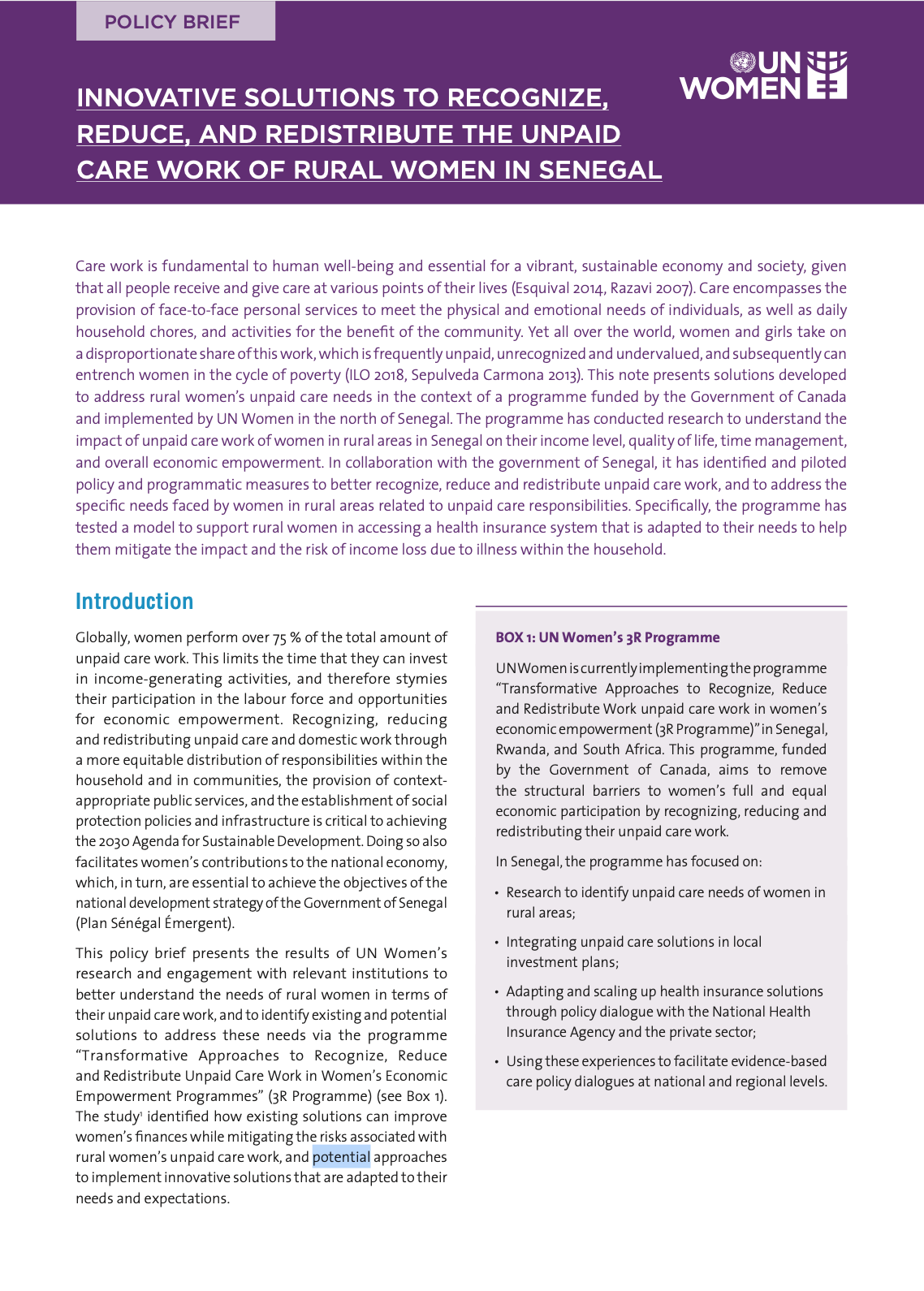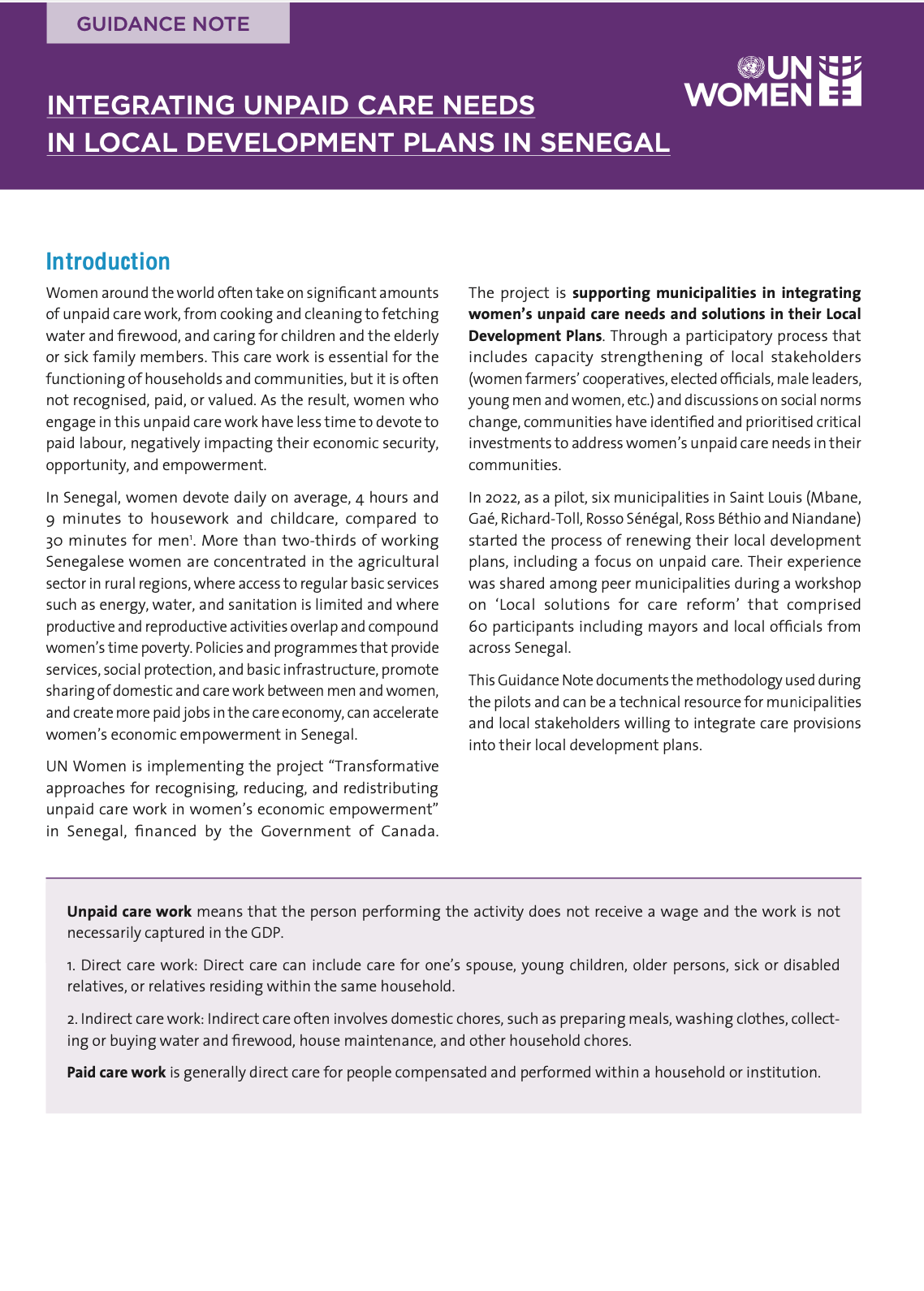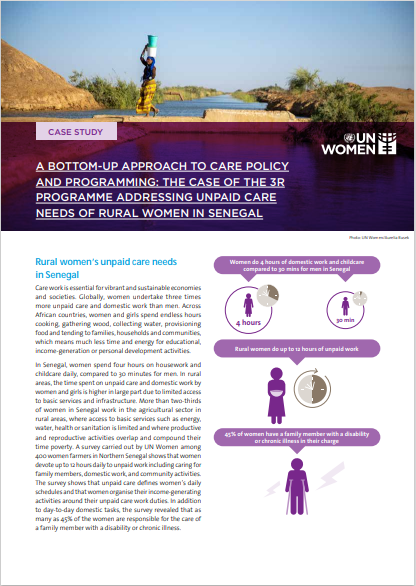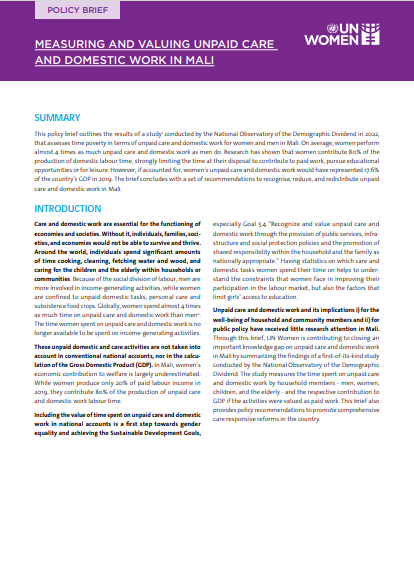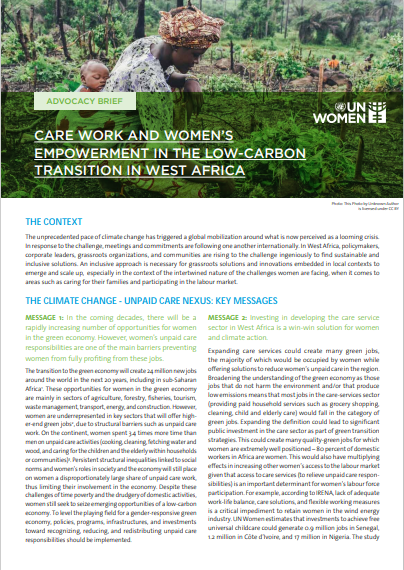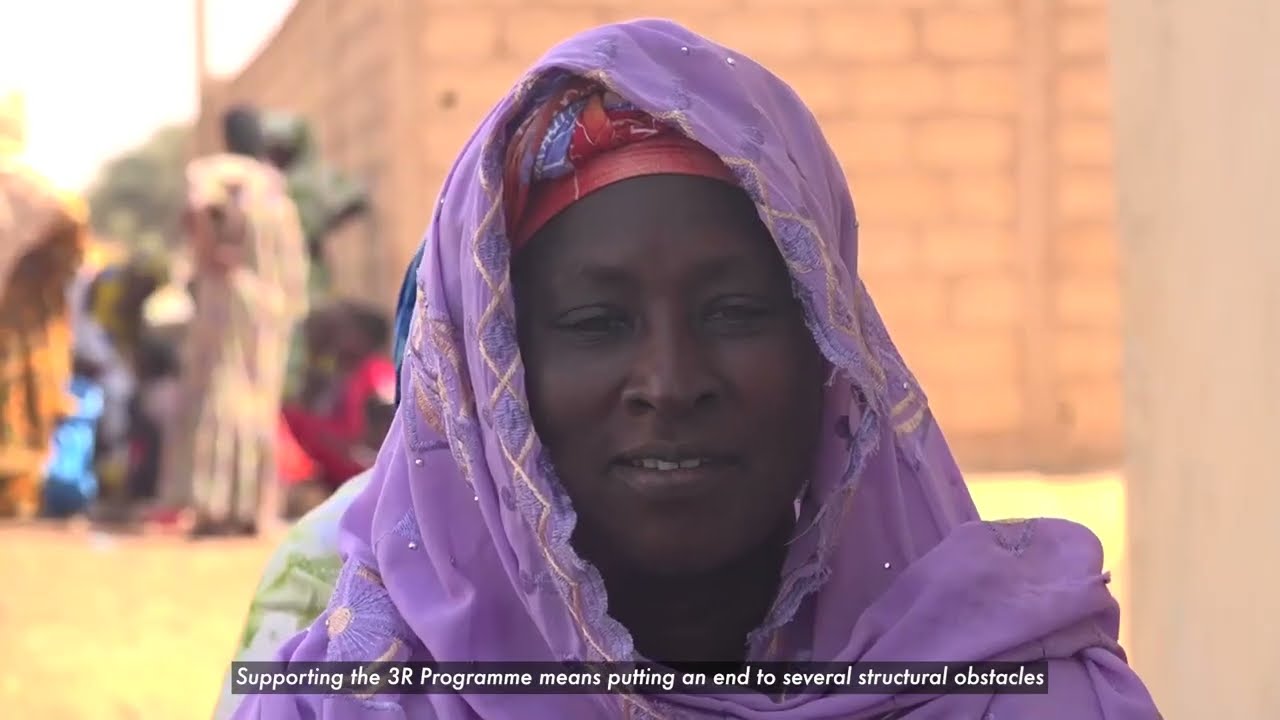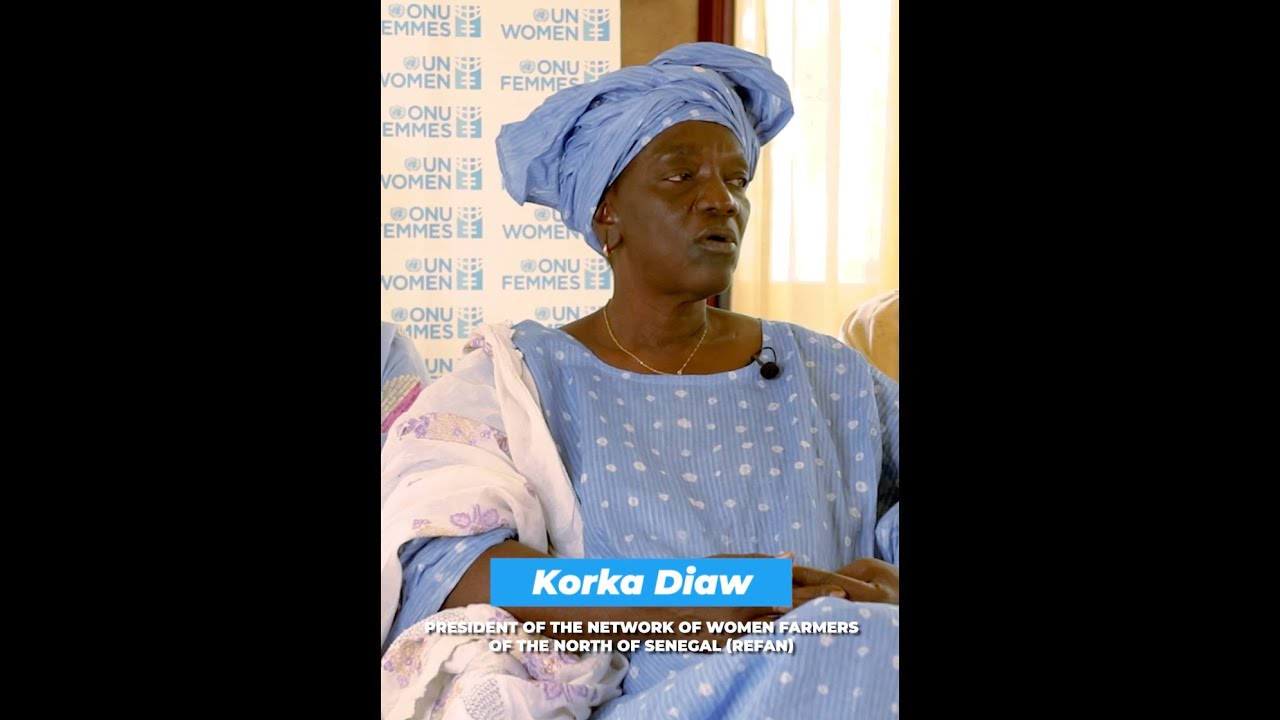Recognizing, Reducing and Redistributing Unpaid Care Work in Senegal
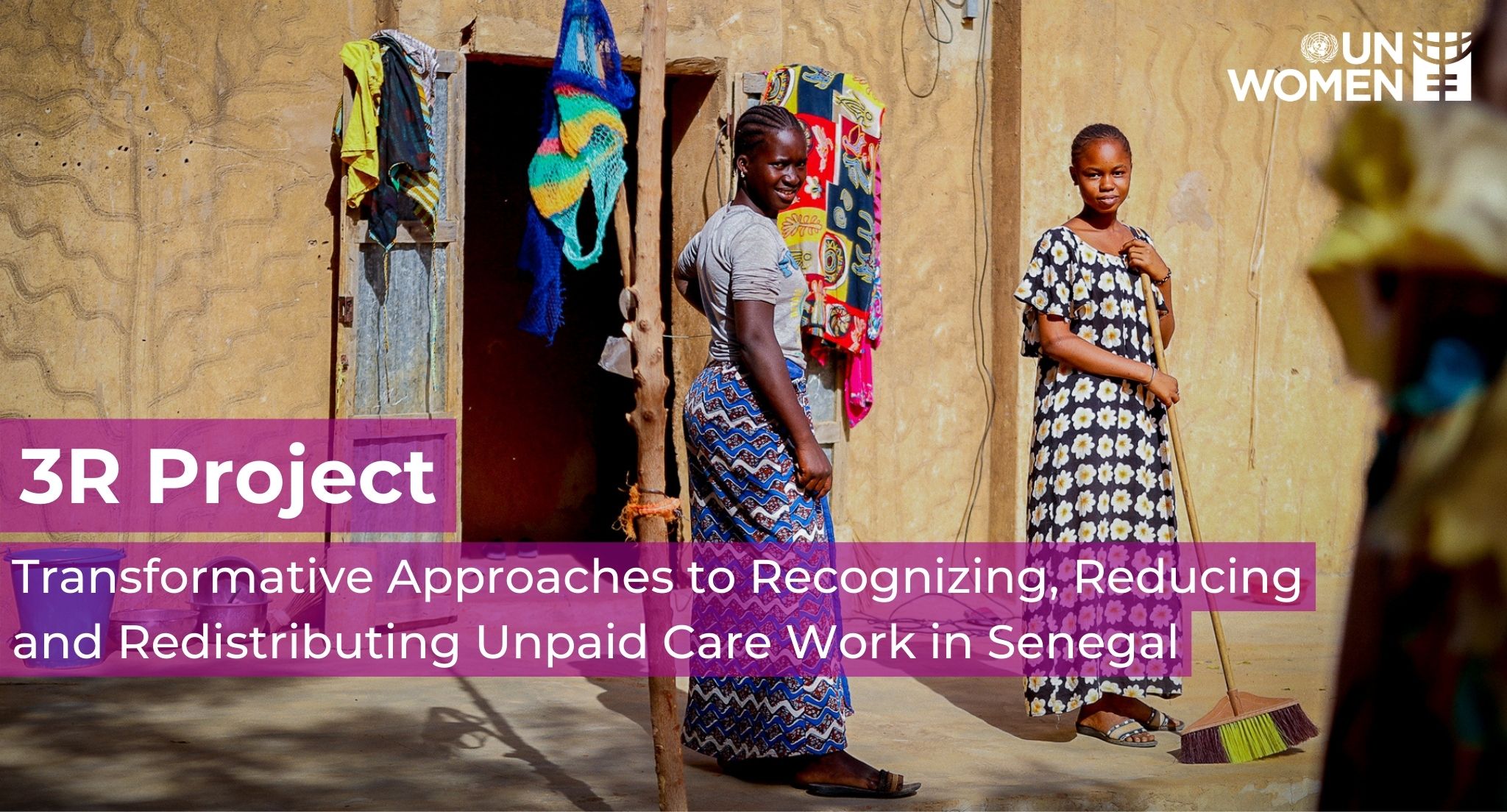
Care work is essential for the functioning of households and societies, but it is often not recognized, paid, or valued. Women around the world take on significant amounts of unpaid care work, from cooking and cleaning to fetching water and firewood, and caring for children and the elderly or sick family members. As a result, they have less time to devote to paid work/income generating activities, or educational opportunities.
In Senegal, women spend daily on average, 4 hours and 9 minutes to housework and childcare, compared to 30 minutes for men. More than two-thirds of Senegalese working women are concentrated in the agricultural sector in rural regions, where access to regular basic services such as energy, water, and sanitation is limited and where productive and reproductive activities overlap and compound women’s time poverty.
Policies and programs that provide services, social protection, and basic infrastructure, promote sharing of domestic and care work between men and women, and create more paid jobs in the care economy, can accelerate women’s economic empowerment in Senegal. UN Women is implementing the program “Transformative Approaches to Recognize, Reduce and Redistribute Work unpaid care work in women's economic empowerment (3R Program)” in Senegal, and Rwanda.
In Senegal, the program has focused on: research to identify unpaid care needs of women in rural areas; integrating unpaid care solutions in local investment plans; adapting and scaling up health insurance solutions through policy dialogue with the National Health Insurance Agency and the private sector; and using these experiences to facilitate evidence-based care policy dialogues at national and regional levels.
National Policy Dialogue on unpaid care in Senegal: Link to event page
Unpaid care in West Africa Women’s Economic Empowerment Symposium link to: Article
